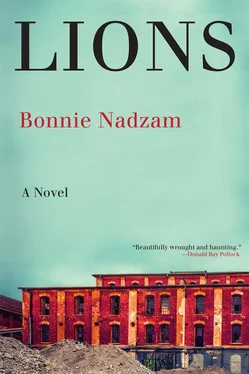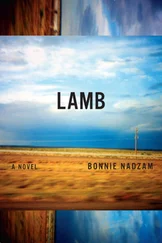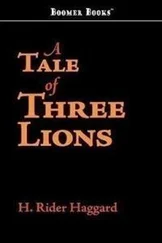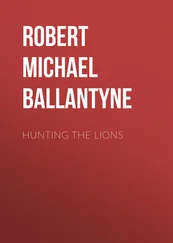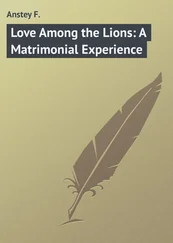It’d started in the hours before dawn one summer some four hundred years earlier when a tribe of men, women, and children left the Spanish colony in New Mexico where they’d toiled beneath the desert sun, and left in pursuit, it’s said, of freedom. Imagine rows of squash cultivated in the midst of alien flowers blooming on cactus. Oxcarts lined up in rows. One sprawling, low-lying adobe fort and half a dozen shacks and outbuildings. Silent as a herd of cats, a band of families, natives and Spanish, French and Mexican, gathered at the edge of the outpost where patches of hard corn met the sand, and left. Quietly walking, no running, no horses, to the north and east. They crossed over a thousand miles, one step at a time, an entire people gone overnight, as if kidnapped. The Spanish, alongside the French, led by a blue-eyed, black-haired man who’d had his nose bitten off in a fight, sent out their own search expedition to find them. These missing people had been their property, it was said. On horseback they combed the plains from present-day Mexico up through Arizona and New Mexico, and ended up right around Lions, on the high plains in eastern Colorado, before all tracks ran out and the search party turned around empty-handed.
It was said by witnesses — men hauling furs and liquor across the Southwest on mules or in ox-drawn carts — that they vanished in broad daylight, and that their number increased all the time as new wanderers joined them.
Truckers have seen them.
One guy who runs I-80 from eastern Iowa to Reno will call it in twice a year. A thousand of them, he’ll say, their hair blowing back, kids, mules, white men, red men, black men, yellow men, women of all shapes and sizes, baskets on their heads, packs on their backs. And you don’t want them to look at you, he’ll say. You don’t know why but you don’t.
Marybeth Sharpe once claimed to have walked among them for an hour one afternoon, from the old Dairy Queen to way out behind the northernmost edge of Jorgensen’s hay fields where bluffs from the dry riverbed begin to rise up into the mesa.
They have no particular aims or goals, no ambition, neither hope nor regret. Over the years, they’ve pulled others into their circle. Children, men, women, lost or mistreated animals. Anyone out of place — anyone who notices when, say, a single white star aligns with a stone peak and a blue spruce. If you’re attentive, you’ll see it. If you miss it — the painted doorway, the odd gentleman, the woman who seems to be looking up at you from deep within a well — they’ll disappear, and the gate will close again.
“Let me in,” Gordon would sometimes try, addressing, say, the evening star.
“Gordon, no.” Leigh would come up behind him, his face pointed out the broken window at the stripe of cottonwoods waving their hands in the twilight.
By the morning of Leigh’s eighteenth birthday the red potted petunias outside the Lucy Graves had shriveled into black tissue paper, like spiders on stems, and the gulls and terns that used to inhabit the standing water of irrigated fields until mid-summer had already left for the landfill south of town.
Leigh watched the window for the Walkers’ truck — he wouldn’t forget today. Now he would come. By lunch when the volunteer firefighters led by Chuck Garcia passed the diner, it was already one hundred and three degrees. Chuck’s lights were spinning, but no sirens.
“What’s this?” May leaned out over the counter. “There a fire?”
“Anything moving that fast on a day like this is heading toward a water hole,” Boyd said, and as it turned out, he was right.
Leigh stepped into the street, and he and May followed. There were three customers in the booths, all strangers from the highway, and they stayed where they were.
Marybeth Sharpe stood up from her rocking chair in front of her store, and waved.
“What the heck’s going on?” Boyd called to her.
“Search me,” she hollered. She was grinning, her wide hips jutting out from the top of a wide, long, dark skirt. Something was happening — it was like a holiday.
Still in her apron, Leigh went with Boyd in his truck. They passed the Evening Primrose where an ambulance had already stopped. Stricken faces of nurse aides and old folks hung like white ghosts in the heat. Boyd slowed and followed Chuck’s vehicle.
Behind them, May hustled the last of her lunch patrons, turned the diner’s “open” sign to “closed,” crossed the street, unlocked the side door to the bar, and sat in the cool dark to wait.
By the time Boyd and Leigh reached the source of the commotion, the first responders had already emptied out of the firetruck and begun the systematic process of opening the water tower. It took Chuck and his assistants very little time to figure out the trouble, because a similar thing had happened recently in Chicago, where a young man had been murdered and his body dumped in the water tower on top of an exclusive hotel. The Burnsville ambulances filled up with five sick children from the day care and eleven old men and women from the Evening Primrose before heading back toward the clinic. Diarrhea, vomiting, crippling stomach cramps — and knowing what’d caused it made everybody sicker. They found the tall stranger in the tank of the town’s water tower — his lungs full, his abdomen bloated, his coat spread open like black wings—floating just beneath the surface in his liquid tomb. Chuck and the men from Burnsville tried to keep the people of Lions back, but they all crowded around fifty feet from the tower, where Chuck had set up tape. Then, of course, they all turned away, hands over their mouths — even the grown men. Boyd held Leigh up on his arm and brought her back to the truck.
When they returned, Boyd joined May in the bar, which he decided not to open that night. He poured a whiskey, then sat beside her.
“Did you hear?” he asked her.
“You better tell me.”
He told her. She sat staring, her face propped on her hand, her hand over her mouth. “His face was all—” Boyd’s voice roughened. “It was terrible, May. He was coming apart.”
“Did Leigh see?”
Boyd nodded.
“Ah, shit. Where is she now?”
“Waiting for Gordon somewhere, I’d say.”
Boyd and May sat with their elbows on the bar, their drinks between their hands.
“If that boy’s gone another day we ought to have Chuck do something,” May said. “Send someone after him.”
“Georgianna doesn’t seem worried.”
“I’m not sure she’s got all her faculties about her. You should see her, Boyd.”
“I’ve seen all the seeing I can handle.” He emptied his glass and poured another.
“I knew it was bad,” she said. “And our fault.”
“Aw, come on, May,” he paused and looked at her over the rim of his glass. “We don’t know why he did what he did.”
“Why are you drinking whiskey, then? In the middle of the day?”
When children in Burnsville told it, the stranger was still alive when they found him, and he choked out his last watery breath right there in front of the three men and one woman in coveralls who came from Burnsville to drain the tank. They said that days earlier, a man with a big silver mustache had led the people of Lions, who carried the stranger above their heads and down the street and dumped him in the water tower with their own hands. They said the stranger was hard to kill, that he fought for his life. They huddled together in the bathroom in the dark and looked into their own reflections to see the fear that was in his eyes when the cone-shaped lid was lowered down over him.
But in Lions, no one — not the children, not anyone — wanted to talk about it. And no one wanted the tank, which had been there since 1919, cleaned or refilled. The county coroner came out for the body, and Chuck put out a wire, and made that call to North Platte after all. There was no record of any missing man from the place or from any town nearby who fit the description and, in fact, no record of any missing man fitting that description in decades’ worth of records.
Читать дальше
